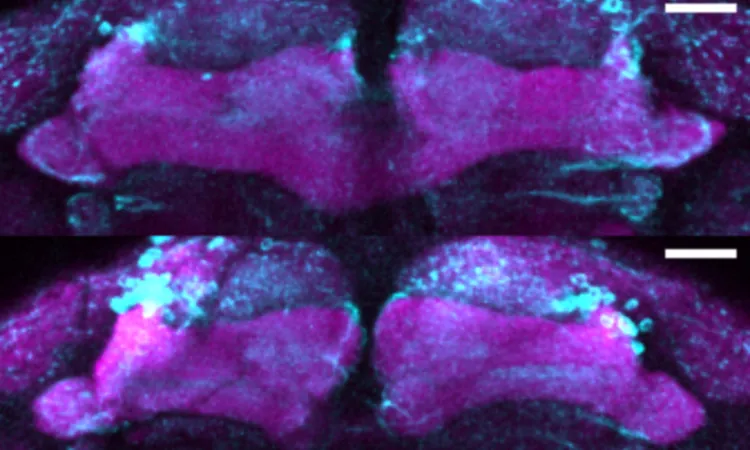
Groundbreaking Discovery: New Genetic Mutation Linked to Early-Onset Parkinsonism
2024-09-27
A Genetic Breakthrough in Understanding Parkinsonism
In a monumental finding that could reshape our understanding of Parkinsonism—a collective term for neurological disorders including Parkinson's disease—researchers have identified a mutation in the SGIP1 gene, offering new insights into early-onset cases of this debilitating condition. This discovery was catalyzed by an Omani family seeking answers after two of their daughters exhibited severe symptoms of Parkinsonism at a young age. Their quest led them to neurologist Professor Ramachandiran Nandhagopal and geneticist Dr. Patrick Scott at the Sultan Qaboos University Hospital.
Revealing the Role of the SGIP1 Gene
The SGIP1 gene had not been previously associated with Parkinsonism, and this groundbreaking revelation required a collaborative effort with Professor Patrik Verstreken’s research group at the VIB-KU Leuven Center for Brain & Disease Research. Together, they set out to decode how the SGIP1 mutation impacts brain function.
Employing a unique model using fruit flies devoid of the SGIP1 gene, the scientists observed significant symptoms akin to those found in Parkinsonism, such as impaired movement and degeneration of brain cells. Delving deeper into their findings revealed alarming defects in synapses—crucial structures that enable communication between neurons—which were failing to properly manage protein recycling and breakdown.
The Importance of Synapse Health
Dr. Marianna Decet, the study's lead author, emphasized the vital connection between synaptic health and neuron survival: “Our research underscores the importance of maintaining synapse integrity and the balance of proteins within them to shield against diseases like Parkinsonism.”
Sabine Kuenen, a co-author of the study, highlighted the revolutionary implications of the SGIP1 mutation: “This finding not only deepens our understanding of neurological disorders but also serves as a reminder that even minor genetic alterations can significantly alter brain functionality.
A New Horizon for Research and Treatment
Professor Patrik Verstreken expressed optimism about future investigations, stating, “This marks the first identification of SGIP1’s role in Parkinsonism. Our next steps will involve further studies to corroborate our findings across additional cases, with the ultimate goal of enhancing diagnosis and treatment strategies for Parkinsonism.”
As researchers celebrate this significant milestone, patients and families continue to foster hope for advancements in managing this challenging disease. While this discovery opens new avenues for research, it's essential to recognize that turning these findings into therapeutic applications will still require years of dedicated study.
With the world watching closely, this groundbreaking revelation could be the key to unveiling new pathways for understanding—and ultimately combating—Parkinsonism.




 Brasil (PT)
Brasil (PT)
 Canada (EN)
Canada (EN)
 Chile (ES)
Chile (ES)
 España (ES)
España (ES)
 France (FR)
France (FR)
 Hong Kong (EN)
Hong Kong (EN)
 Italia (IT)
Italia (IT)
 日本 (JA)
日本 (JA)
 Magyarország (HU)
Magyarország (HU)
 Norge (NO)
Norge (NO)
 Polska (PL)
Polska (PL)
 Schweiz (DE)
Schweiz (DE)
 Singapore (EN)
Singapore (EN)
 Sverige (SV)
Sverige (SV)
 Suomi (FI)
Suomi (FI)
 Türkiye (TR)
Türkiye (TR)